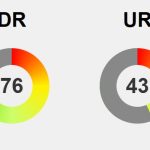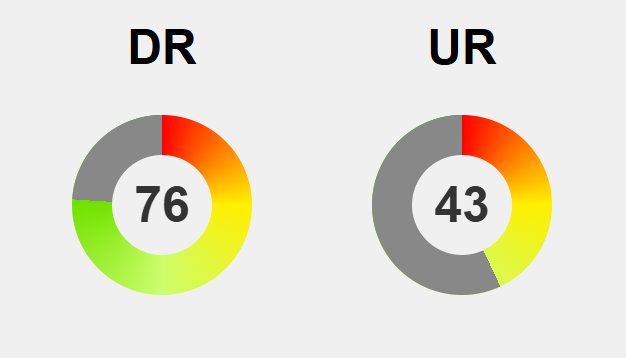Kazakhstan promises reform, yet systemic human rights abuses persist beneath a façade of progress. Widespread torture, arbitrary detention, media censorship, and societal discrimination reveal deeply entrenched repression that the government continues to wield as a primary tool for control. Despite superficial legal adjustments and limited political openings, genuine democratic change remains elusive as authorities silence opposition, manipulate legal systems, and restrict civil society. Ordinary citizens, marginalized groups, and activists face constant surveillance, legal harassment, and social hostility—creating a climate of fear that stifles open debate and civic participation. Is superficial reform enough when the core structures of repression remain intact? Without dismantling these deeply rooted control mechanisms—over politics, media, and social fabric—true progress remains distant. As repression deepens, the question remains: can Kazakhstan break free from its cycle of silence and control to forge a path toward genuine democracy, or will superficial adjustments continue to mask a reality of persistent oppression?
Reform Promises versus Harsh Reality: Is Repression the Barrier to Change
Kazakhstan has long made promises of reform, projecting an image of progress toward a more open and democratic society. Official statements tout commitments to transparency, civil liberties, and political pluralism, fostering hope among those eager for change. Yet beneath these declarations, the reality remains starkly different. Systemic human rights violations persist across all levels—ranging from widespread torture and arbitrary detention to media censorship and societal discrimination. These abuses are not isolated incidents but deeply embedded features of the political landscape, revealing a pattern of superficial reforms that conceal the true state of affairs.
Despite some legal adjustments and limited political openings, meaningful change remains elusive. Authorities continue to rely on repression as a primary tool to maintain control, silencing opposition, restricting independent journalism, and curbing civil society. The legal system is often wielded as an instrument of repression, with opposition figures and activists facing fabricated charges, lengthy pretrial detention, and imprisonment. This environment discourages dissent and ensures the ruling elite’s dominance, effectively blocking the development of a genuine democratic space.
The ongoing repression extends into the daily lives of ordinary citizens. Fear of surveillance and retaliation silences open discussion and political engagement. Journalists face threats, violence, and censorship, while NGOs struggle with restrictive laws and limited operating space. Marginalized groups such as LGBTQ+ individuals, victims of domestic violence, and persons with disabilities encounter societal hostility and legal hurdles that compound their suffering. These layered restrictions and societal biases reinforce a climate where repression is ingrained in social norms, not just politics.
The question of whether repression is the main obstacle to reform is increasingly urgent. Evidence suggests that without dismantling these repressive structures—controlling institutions, silencing opposition, and limiting freedom of expression—genuine progress remains out of reach. Superficial legal or electoral changes cannot change the fundamental dynamics of a system built on suppression. Until repression is confronted directly, hopes for a more open, accountable Kazakhstan will continue to fade behind a curtain of control and silence.
In the end, the promises of reform ring hollow when weighed against the reality of systemic repression. They serve as window dressing rather than a path to meaningful change. The deepening grip of repression not only undermines political development but also perpetuates social inequalities and human rights abuses. Recognizing repression as the core barrier is essential to understanding why Kazakhstan’s journey toward democracy remains stalled—and why only confronting these repressive forces can pave the way for lasting progress.
Systemic Human Rights Violations Persist Despite Promises of Progress
Despite Kazakhstan’s official claims of progress, the reality on the ground remains troubling. Widespread torture and ill-treatment in detention centers continue to be a grim norm, with reports from human rights groups highlighting frequent physical abuse aimed at extracting confessions or intimidating detainees. Laws banning torture are often ignored in practice, and overcrowded prisons with poor conditions create an environment where abuse flourishes unchallenged. This cycle of violence is rarely punished, and accountability remains scarce, reinforcing a culture of impunity.
Political imprisonment is another persistent issue. Opposition figures, activists, and journalists face arbitrary arrests on charges widely viewed as fabricated, designed to silence dissent. High-profile cases, such as opposition leaders sentenced on dubious criminal charges, illustrate how the legal system is weaponized to eliminate political rivals. Many are held for years without fair trials, and pretrial detention is extended unlawfully, further entrenching repression. Such tactics suppress alternative voices and keep the ruling regime firmly in control.
Media freedom is severely limited. Independent outlets operate under constant threat—facing harassment, censorship, or violence. Journalists reporting on corruption or abuses often encounter threats, online harassment, or physical attacks, which stifle independent journalism and erode public trust in information. Laws demanding online censorship and monitoring serve to silence dissent, with opposition websites blocked and social media comments scrutinized. This digital environment narrows the space for diverse perspectives, reinforcing state control over information.
Civil society organizations face relentless restrictions. Many NGOs working on sensitive issues like LGBTQ+ rights or political reform struggle with complex registration procedures, restrictions on foreign funding, and intrusive surveillance. Authorities frequently harass, surveil, or shut down groups that challenge the status quo, leaving civic activism stifled. This environment hampers efforts to hold authorities accountable and weakens the social fabric needed for meaningful reform.
The repression extends into daily life, impacting vulnerable groups most acutely. Discrimination and violence against LGBTQ+ individuals, victims of domestic violence, and persons with disabilities continue unabated. Societal hostility and legal hurdles often leave these communities without support or protection. The ongoing crackdown on dissent, coupled with societal intolerance, reinforces systemic repression as a pervasive force shaping everyday experiences.
Online spaces, once a potential platform for free expression, have become heavily monitored and censored. Opposition websites are frequently blocked, social media posts scrutinized, and critical comments legally threatened. New laws requiring registration of online commenters and content monitoring push dissent further underground. Citizens self-censor out of fear, and the flow of diverse opinions remains severely restricted, consolidating the government’s narrative.
This pattern of ongoing violations demonstrates that repression is not merely a side effect of authoritarian tendencies but a deliberate tool to sustain control. It infiltrates legal systems, media landscapes, and social structures, creating a comprehensive environment of suppression. Without addressing these systemic issues, efforts at reform will remain superficial, unable to challenge the deep-rooted practices that sustain Kazakhstan’s cycle of repression.
Repression at the Heart of Kazakhstan’s Democratic Challenges
Systemic repression lies at the core of Kazakhstan’s ongoing struggle to implement meaningful democratic reforms. Despite the government’s outward promises of openness, political expression remains tightly constrained. Opposition voices are effectively silenced through arbitrary detention, fabricated charges, and prolonged pretrial imprisonment that serve to eliminate alternatives to the ruling elite. This environment fosters a climate of fear, discouraging any genuine challenge to authority and preventing the emergence of a vibrant political landscape.
The legal system itself perpetuates repression. Laws are often applied selectively, with opposition figures and activists routinely targeted under vague or draconian statutes. The judiciary is manipulated to serve political ends, with verdicts preordained and trials lacking fairness. This weaponization of justice consolidates the ruling party’s grip and deters dissent, making political imprisonment a common tool to maintain control rather than a consequence of genuine legal processes.
Control over the media is another pillar of repression. Independent outlets face harassment, censorship, and violence, while laws demanding online monitoring further restrict freedom of expression. State-controlled narratives dominate, and critical voices are pushed underground or silenced altogether. Social media platforms are scrutinized, and opposition websites are blocked, creating an information environment where dissent is risky and alternative viewpoints are systematically suppressed.
Civil society faces severe restrictions that hinder its ability to function as a check on power. NGOs working on sensitive issues encounter bureaucratic hurdles, restrictions on foreign funding, and intrusive surveillance. Many organizations are unable to register or operate freely, fearing reprisals. This stifles activism and prevents civil society from holding authorities accountable, entrenching a cycle where reform remains an unattainable goal.
These repression mechanisms are deeply interconnected, forming a closed system resistant to change. Control over political institutions, the media, and civil society creates a fortress that shields the status quo. Superficial reforms, such as cosmetic elections or legal adjustments, fail to address these foundational issues. Without dismantling the core structures of repression, genuine democratic progress remains a distant hope.
Repression also infiltrates everyday life, shaping social norms and individual behavior. Fear of surveillance and retaliation discourages open discussion and political participation. Marginalized groups face societal hostility and legal hurdles that further entrench their vulnerability. This pervasive climate of control and intimidation limits the space for societal change and sustains the cycle of repression.
Recognizing repression as the primary obstacle is crucial. It underpins every aspect of Kazakhstan’s political and social landscape, preventing the development of a truly democratic society. Superficial reforms only serve to mask the deeper realities of control and suppression. Breaking this cycle requires confronting and dismantling the repressive structures that sustain it, paving the way for genuine reform and lasting change.
Efforts to promote awareness and international pressure can play a vital role in encouraging reform. Organizations working to support democracy often highlight the importance of understanding these repression mechanisms, such as through resources about Kazakhstan’s political situation, which can be found at Kazakhstan’s Democratic Challenges. By shedding light on these issues, external actors can help create the momentum needed to challenge the entrenched repression and foster meaningful change.
Living Under Siege: Repression’s Impact on Daily Life and Activists
Repression in Kazakhstan seeps into everyday life, shaping how people interact, share ideas, and participate in society. Many citizens live under constant surveillance, which silences open discussion about politics and human rights. Speaking out or criticizing the government can lead to legal threats, harassment, or arrest, prompting most to choose silence over risk. This climate of fear creates a self-censoring environment where genuine opinions are hidden, stifling public debate and making societal progress difficult.
For activists, the challenges are even more daunting. Authorities routinely monitor their activities, conduct raids, and intimidate organizers. Harassment, legal threats, and harassment campaigns are common, often forcing activists to operate covertly or give up altogether. Journalists reporting on corruption or abuses face threats, online harassment, and physical attacks, which weaken independent journalism and erode trust in information sources. As a result, critical voices struggle to reach the wider public, and the flow of honest information is tightly controlled.
Online spaces, once a beacon for free expression, have become battlegrounds of censorship and monitoring. Opposition websites are shut down, social media comments are scrutinized, and laws require platforms to report user activity. This crackdown pushes dissent further underground, where many users self-censor out of fear of legal or physical repercussions. The digital environment limits access to diverse perspectives, consolidating the government’s narrative and making it harder for citizens to challenge official accounts.
Vulnerable groups experience repression most acutely. LGBTQ+ individuals face societal hostility, violence, and legal discrimination, often hiding their identities to avoid danger. Victims of domestic violence frequently remain silent due to social stigma or lack of trust in authorities. People with disabilities encounter barriers in employment, education, and public services, with societal attitudes and legal restrictions hindering their inclusion. These issues show how repression extends beyond politics, deeply affecting social fabric and individual safety.
Discrimination and violence against marginalized communities are often normalized. Societal hostility and legal hurdles discourage many from seeking help or speaking out, trapping them in cycles of marginalization. Fear of retaliation or social rejection outweighs the desire for justice, leaving many victims voiceless and vulnerable. As repression intensifies, societal divisions deepen, and the space for meaningful social change narrows, perpetuating inequality and injustice.
Despite these risks, brave individuals continue to challenge the system. Their activism often comes at a high personal cost—facing arrests, violence, or exile. Many operate in secrecy, knowing that any misstep could lead to severe repercussions. This pervasive climate of fear keeps most silent, maintaining the status quo and preventing the growth of resilient civil society capable of pushing for reform.
Repression also influences daily routines, from casual conversations to online exchanges. Citizens are cautious about what they say, knowing that open debate can lead to legal consequences. This atmosphere discourages political participation and community engagement, weakening social cohesion and collective action. Over time, the persistent control suppresses societal vitality, making genuine reform seem even more distant.
In this environment, change remains elusive. Repression isn’t just a political tool; it’s a barrier embedded in every aspect of life. Without addressing this deep-rooted control, efforts at reform will struggle to take hold. The cycle of silence, fear, and suppression continues to dominate Kazakhstan’s social landscape, preventing the country from moving toward a more open and just society.
Future Prospects: Confronting Repression to Unlock Genuine Reform
Despite Kazakhstan’s outward promises of reform, the deep-rooted system of repression remains the most significant obstacle to genuine change. Widespread violations—from torture and illegal detention to media censorship and societal discrimination—highlight how control is woven into every facet of governance and daily life. These practices are not accidental; they are deliberate tools used by the regime to silence opposition, manipulate the legal system, and maintain a firm grip on power. Without dismantling these repressive structures, efforts at superficial reform will only serve as window dressing, leaving fundamental issues unaddressed.
Control over political institutions, the media, and civil society forms a fortress that shields the status quo. Opposition figures face arbitrary arrests, fabricated charges, and prolonged detention, creating an environment of fear that discourages dissent. State-controlled narratives dominate the information landscape, and online censorship further narrows the space for independent voices. Civil society organizations, especially those advocating for human rights or political reform, operate under heavy restrictions, limiting their ability to hold authorities accountable or push for real change. These interconnected layers of repression sustain a cycle that resists meaningful reform.
Everyday life in Kazakhstan reflects this systemic control. Citizens live under constant surveillance, self-censoring out of fear of legal threats or social repercussions. Marginalized groups such as LGBTQ+ individuals, victims of domestic violence, and persons with disabilities face societal hostility, legal discrimination, and violence, often without protection or support. The climate of repression discourages open discussion and community engagement, reinforcing social divisions and deepening inequalities. This pervasive environment renders societal progress almost impossible without a fundamental shift in how control is exercised.
The recent unrest in January 2022 exposed the fragility of Kazakhstan’s human rights environment. Instead of prompting reform, it prompted a crackdown—arrests, restrictions, and violence—underscoring how repression is viewed as essential for maintaining stability. Moving forward, the challenge lies in whether Kazakhstan’s leadership will recognize that true progress demands confronting and dismantling these repressive mechanisms. External pressure alone is insufficient; internal change within the ruling elite is crucial to breaking free from the cycle of control.
Looking ahead, the prospects for reform hinge on whether the country’s leaders will prioritize the dismantling of repressive structures over superficial gestures. Genuine progress requires allowing space for political competition, independent media, and civil society to flourish. Until the core issues of repression are addressed, hopes for a more open, democratic Kazakhstan will remain distant. The path forward is fraught with risks, but history shows that sustained pressure and internal will can challenge even the most entrenched systems of control.
The fight against repression is ultimately a fight for dignity, justice, and the future of Kazakhstan itself. Breaking free from cycles of silence and fear demands courage from within and support from without. Only when repression is confronted head-on can the country hope to build a society rooted in accountability, freedom, and genuine democracy. Until then, superficial reforms will continue to obscure the reality—one where true change remains just beyond reach, waiting for the moment when Kazakhstan’s leadership chooses to embrace openness over control.







